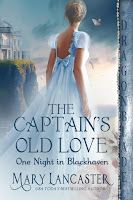Euphoria by Lily King is an immersive, heartbreaking historical novel. Set in the 1930s, it follows three anthropologists in New Guinea: Nell Stone and her husband Schuyler Fenwick (Fen), and loner Andrew Bankson. They have very different research styles, giving a fascinating look into the field of anthropology, with all its flaws on display. Yet despite the limitations of their work, they are passionate about it. Nell is particularly passionate and particularly methodical. Fen is more ruthlessly ambitious and possessive. Bankson is in the midst of a crisis of faith in the profession when he meets up with the husband-wife team. Although working with two different native communities, they manage to spend a good deal of time together. Bankson and Nell inspire one another, while Fen is driven by jealousy and competitiveness.
Nell and Bankson are so in tune with one another that it is no surprise that they fall in love. The story is told largely by Bankson, years later, looking back. He’s aided in the tale by entries in a journal that belonged to Nell, that was given to him much later by Nell’s closest friend. This is an interesting device that shows us their yearning for one another and how hard they tried to resist the mutual attraction.
The relationship has a slow build, and seems doomed from the start. There is a sense of isolation and danger throughout, but the source of the danger is murky. Will it come from the natives or from the volatile love triangle?
The story is beautifully written. Shot through with regret, there is a poignancy to the narrative that makes the characters sympathetic (except for Fen) despite their questionable actions. Highly recommended.














































